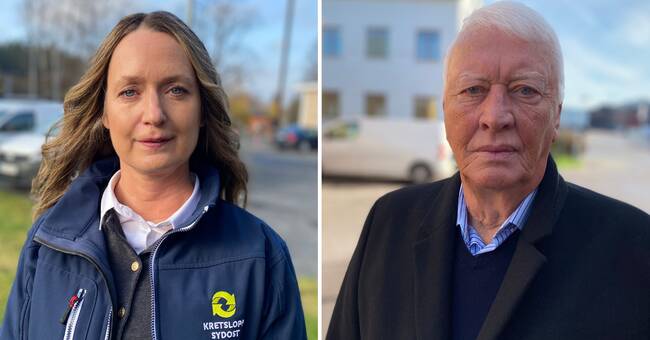- It goes without saying, the one who adds the plastic is the one who is responsible for it disappearing.
And Kretslopp southeast is aware of that, says Kjell Axelsson.
He is chairman of More Biogas and one of the architects behind the letter of intent that was signed nine years ago between Kretslopp Sydost and Biogasföretaget.
The idea was a local cycle where food waste would become fossil-free vehicle gas in Kalmar's public transport and manure in the fields.
But even then, More Biogas was critical of the choice to sort the food waste into plastic bags, says Kjell Axelsson.
- We have been working since 2011 to get Kretslopp southeast to change to a biodegradable bag.
KS: Our mission is to collect food waste
The pre-treatment of food waste, where it is produced into slurry, has from the start been handled by Kretslopp Sydost at their facility Moskogen outside Kalmar.
Therefore, More biogas believes that they have not been able to control how much plastic has entered the system.
Cycle Southeast does not agree:
- We have done it, but it is not the same as having the responsibility, says Maria Schade, union director at Kretslopp southeast.
- The producer of biofertilizer must ensure that it meets the requirements of the farmers.
We have no such requirement, we are not certified.
Our mission is to collect food waste.
Agreement has been terminated
SVT has read the agreement signed between the biogas company and Kretslopp Sydost in 2014, the same year that food waste sorting started.
It states that Kretslopp Sydost undertakes to produce slurry and that the parties "together" will produce biofertilizer with as little visible pollution as the environmental certification requires.
But how opinions should be interpreted "together", and who bears the responsibility when the quality has broken down, there are today divided opinions.
The agreement between the parties was recently terminated, as Kretslopp sydost decided to stop pre-treating the food waste themselves and instead outsource the task to an external party.
A procurement is currently underway where one of the requirements for a new supplier is that it should remove more plastic from the waste slurry.
- We have really tried for seven years, but now we feel that we can not do more.
It is not reasonable for the waste collective to bear a cost that is normally borne by the producer, says Maria Schade.

